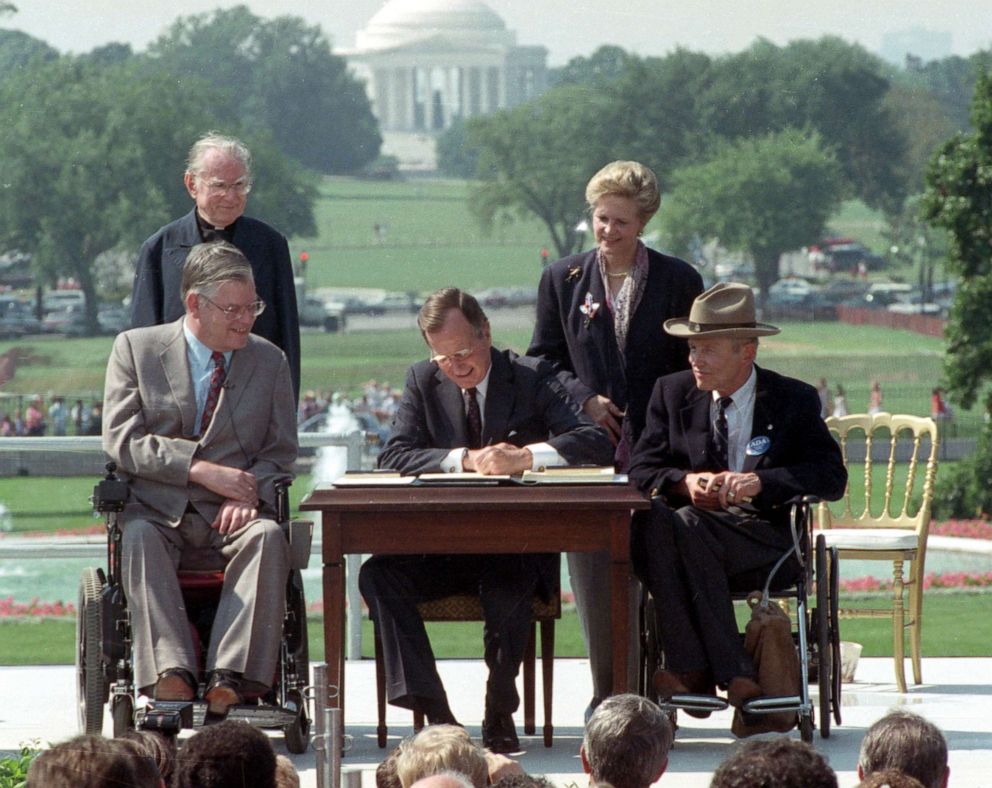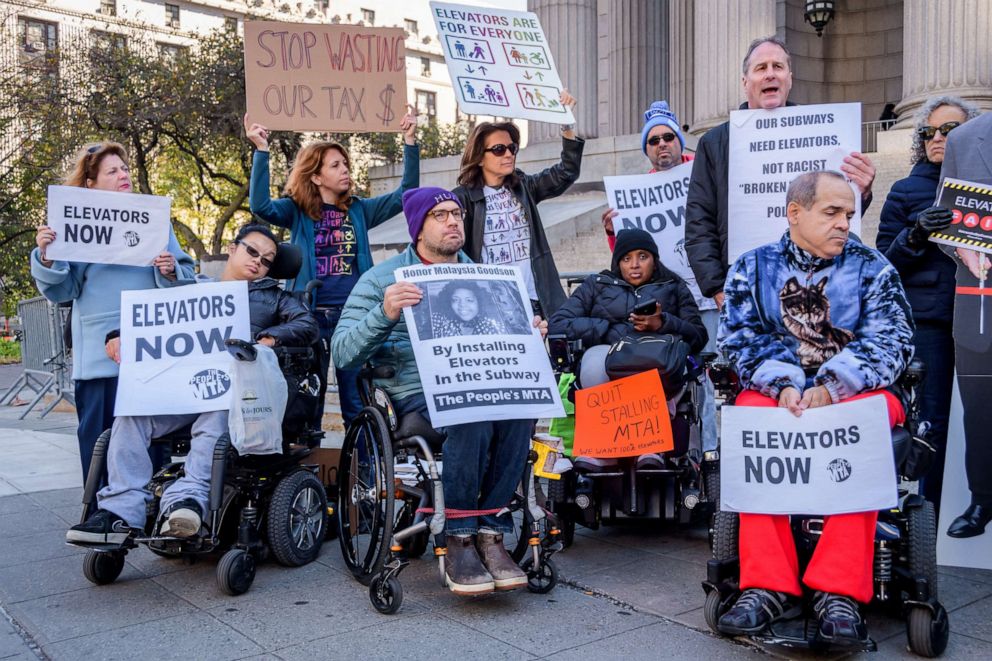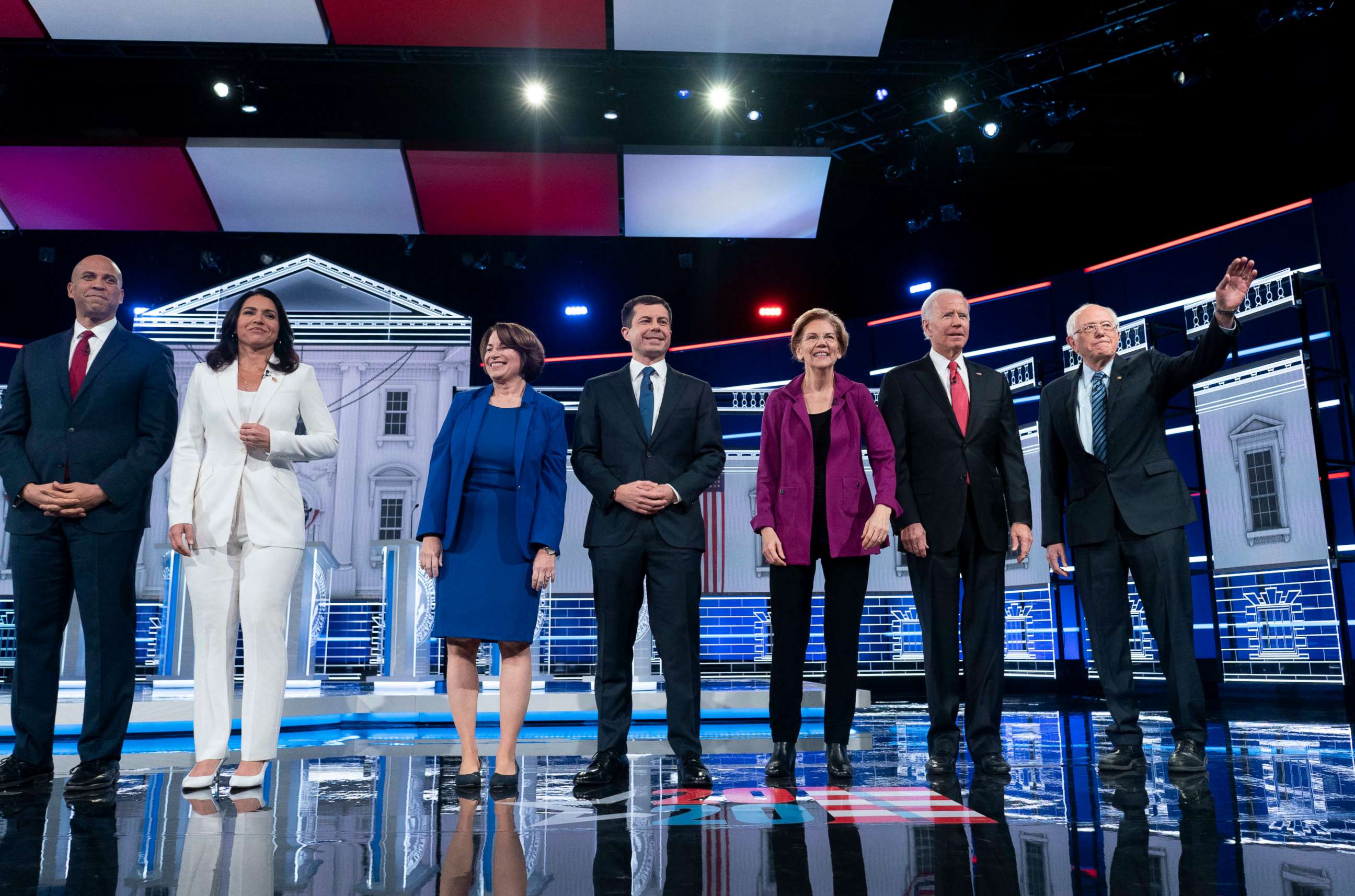Disability activists are speaking out, and they want Democratic candidates to hear them
Disability activists want Democratic hopefuls to address their interests.
As the sixth Democratic primary debate draws near, Gregg Beratan, a disability rights activist and member of the American Disabled for Attendant Programs Today, waits in anticipation for Democratic hopefuls to address a group that has been largely neglected in previous debates: the 61 million Americans living with disabilities.
"Debates have touched on a number of issues pertaining to the disability community," Beratan said, "but the number of times we have heard disability mentioned is minimal."
Since the start of the primary debates, the word disability has only been stated a handful of times by candidates, while concerns relating to the community have tended to come up as an aside when health care, education or other broader issues were being discussed.
The issue of language as a barrier to representation has been raised by many activists, who expressed frustration with candidates’ use of the term special needs.

"Special needs is not something society needs to accommodate and get used to," Beratan said, referring to presidential candidate Andrew Yang’s active use of the term. "The word disability is something the world needs to get used to. Special needs is a euphemistic phrase that actively tells people that having a disability is problematic. There’s nothing special about the needs of most disabled people."
A representative for the Yang candidate said that "Andrew Yang recognizes that people have differing preferences when it comes to using identity-first language (e.g. special needs, autistic) versus people-first language (e.g. children with disabilities, child with autism). As the father of a son with autism, his goal is to address these issues in ways that are as inclusive as possible while also remaining genuine and true to his personal experiences."
"Terminology is important when it comes to the disability community," said activist Bob Kafka. "There’s been a 100-year fight to deinstitutionalize and integrate by having community integrative services, integrative houses, and integrated employment. Even though the intent of the term special needs is to do positive things, it separates us from the rest of the community. The long-term goal has always been integration."
Kafka believes that this issue of language and lack of address on the debate stage points to a broader problem that the community has battled for years.
"Candidates still see disabilities as medical issues rather than social issues," he said. "I’m not saying that we don’t have medical needs, but medicalization overshadows the issues we are talking about. We’ve made progress, but that medical model is still holding us back in terms of political understanding."
Alice Wong, founder and director of the Disability Visibility Project pointed to the importance of representation on a wide-scale setting.
"It may seem superficial to be mentioned by name, but having your community represented matters during these events," she said.

The Centers for Disease Control and Prevention says one in four adults has a physical or mental disability. Between the ages of 18 and 44, one in three 3 adults face extensive barriers to health care access such as the absence of a regular health care provider and unmet needs as a result of cost. Including the subset of ages unaccounted for, people with disabilities make up a large portion of the U.S. population and substantial voting blocs.
Wong co-founded #CripTheVote with fellow disability advocates Beratan and Andrew Pulrang to address the needs of the sizeable community. The nonpartisan campaign, aimed toward addressing disability issues by increasing engagement between voters and politicians, was born out of the 2016 presidential primary debates where disability failed to receive significant attention.
"A lot of issues are disability issues," Beratan said. "From health care to housing and education, politicians don’t recognize that these concerns are relevant to our community."
Beratan believes the health care debate has been a question of Medicare for All or a private insurance option. Not yet addressed on stage have been disability-specific issues such as long-term care services that will allow disabled people to avoid forced institutions or full funding of The Survivors’ and Dependents Education Assistance (DEA) program.
Data from the National Council on Disability point to the need for modifications such as grab bars and handrails, ramps, elevators and lifts in buildings and other accessible infrastructure that has not yet been mentioned in the debates. Activists also say they want candidates to address the issues of education services funding, criminal justice reform, and widespread polling accessibility.
"A lot of these candidates have disability plans on their websites and have spoken in forums," Beratan said. "But watching the debates, you wouldn’t know that there is a disability community."
Maria Town, president and CEO of the American Association of People with Disabilities, noted the strong contrast between what's heard on the debate stage and what materials come out of presidential campaigns. As the former Senior Associate Director in the Obama White House Office of Public Engagement, Town has seen progression in the way the disability community has been addressed.
While policy platforms have advanced in the way disability rights are addressed, Town said candidates still lack practice using disability terminology in public discourse and need to make sure matters relating to the community are fully incorporated into their talking points.

"Historically, the disability community has not been viewed or understood as a powerful voting bloc. 14.3 million disabled people voted in the 2018 midterm elections, and between the 2014 midterm elections and 2018 election, voter turnout rate increased by 8.5 percent," she said, referring to data from a recent study published by Rutgers University. "We are inclusive of African Americans, Latinx Americans, immigrants, and other groups. Presidential candidates need to understand disability issues impact a huge portion of the United States."
Using U.S. census bureau data, Dr. Lisa Schur and Dr. Douglas Kruse, researchers in the Rutgers study, found that in 2016, 35.4 million people with disabilities and 27.3 million people who had a household member with a disability were eligible to vote.
"The disability community constitutes the largest minority group in the USA, and members are frequently overlooked," Kruse told ABC News. "But there are certain issues that motivate people with disabilities to get out there and participate."
"The size of the disability population is growing and getting older, so we can expect a larger voter turnout from the community," Schur added. "People with disabilities tend to vote the same way as people without them, and it can ultimately sway elections. It would be in the best interest of Democratic candidates and eventual nominees of both parties to engage with the community."
In the upcoming debate, advocates are pushing for Democratic candidates to formally address the disability community. #CriptTheVote will be live tweeting during the event to encourage members to voice their opinions and ask questions.
"Every issue is a disability issue," Town said. "Whoever wins the next presidency must be willing to have conversations about what it will take to make sure all Americans, no matter their race or income, not only fundamentally survive, but thrive."



